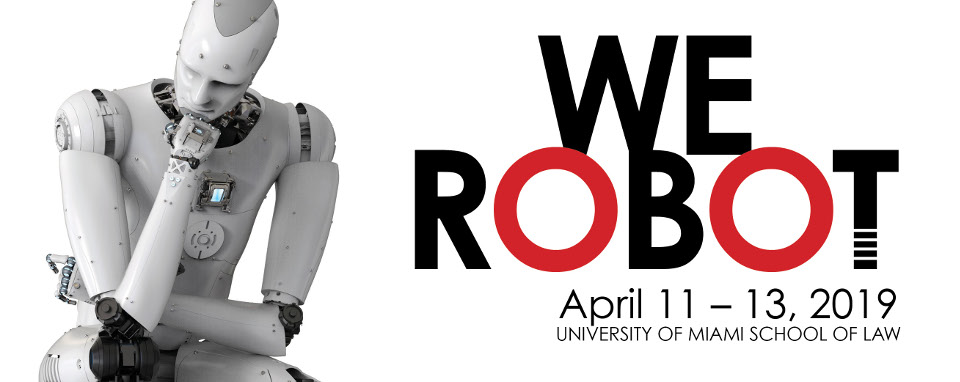
Jake Goldenfein
Madeleine Elish will lead a discussion of Jake Goldenfein, Deirdre Mulligan, and Helen Nissenbaum‘s The Human/Weapon Relationship in the Age of Autonomous Weapons and the Attribution of Criminal Responsibility for War Crimes on Saturday, April 13, at 4:00 p.m. Friday, April 12, at 1:45 p.m. at #werobot 2019.
There is a great deal of hype around the potential social benefits of autonomous vehicles. Rather than simply challenge this rhetoric as not reflecting reality, or as promoting certain political agendas, our paper exposes how the transport models described by tech companies, car manufacturers, and researchers each generate different political and ethical consequences for users.

Deirdre Mulligan
To that end, it introduces the analytical lens of ‘handoff’ for understanding the ramifications of the different configurations of actors and components associated with different models of autonomous vehicle futures. ‘Handoff’ is an approach to tracking societal values in sociotechnical systems. It exposes what is at stake in transitions of control between different components and actors in a system, i.e. human, regulatory, mechanical or computational.
The paper identifies three archetypes of autonomous vehicles – fully driverless cars, advanced driver assist systems, and connected cars.

Helen Nissenbaum
The handoff analytic tracks the reconfigurations and reorientations of actors and components when a system transitions for the sake of ‘functional equivalence’ (for instance through automation). The claim is that, in handing off certain functions to mechanical or computational systems like giving control of a vehicle to an automated system, the identity and operation of actor-components in a system change, and those changes have ethical and political consequences.
Within each archetype we describe how the components and actors of driving systems might be redistributed and transformed, how those transformations are embedded in the human-machine interfaces of the vehicle, and how that interface is largely determinative of the political and value propositions of autonomous vehicles for human ‘users’ – particularly with respect to privacy, autonomy, and responsibility.

Madeleine Elish
Thinking through the handoff lens allows us to track those consequences and understand what is at stake for human values in the visions, claims and rhetoric around autonomous vehicles.

